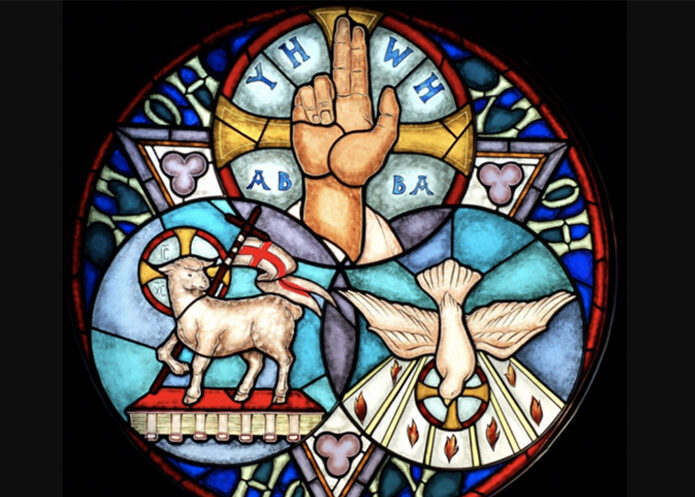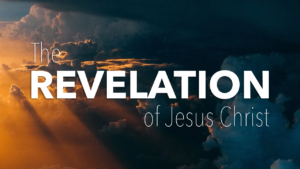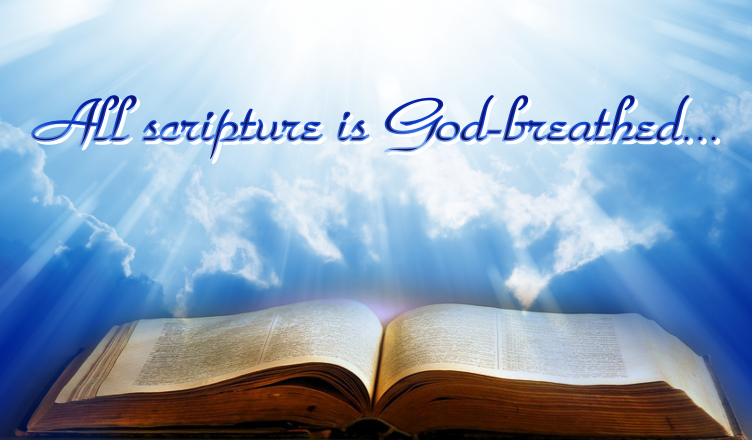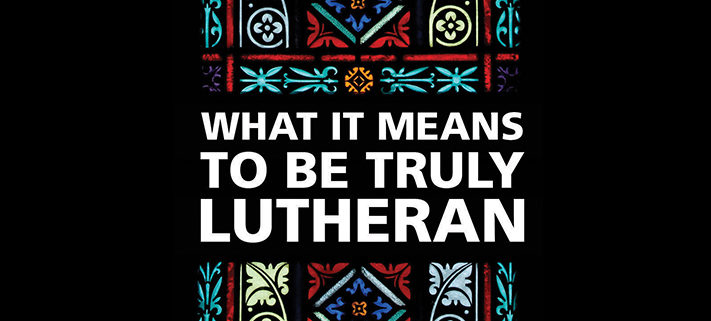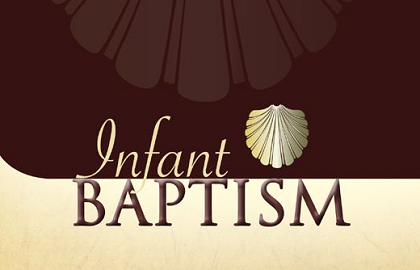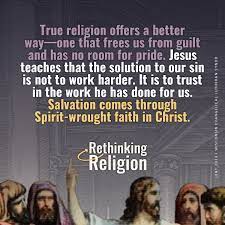WE BELIEVE AND TEACH: A PROFESSION OF OUR LUTHERAN CHRISTIAN FAITH
This briefly spells out what we believe and teach, and gives appropriate Scripture references for further study.
1. THE ONLY TRUE GOD
We believe and teach that the only true God is the “Triune” God – the Father, the Son, and the Holy Spirit. The Triune (“three-in-one”) God is one divine being in three “persons” [Gn 1:26; Dt 6:4; Jn 10:30; Mt 3:16-17; Mt 28:19; Jn 10:30; Jn 15:26; 1Co 8:4; 2Co 13:14]. These three persons are not three gods, nor “god by committee” of three different divine beings, but one substance or essence, one divine Being. Therefore, we (and all Christians!) worship one God in Trinity and Trinity in Unity.
We believe and teach that all three persons of the Trinity are equal, though different. None of the three is superior or subordinate to the other persons [Mt 28:19]. We must neither confuse the three persons nor attempt to divide the divine essence of the Holy Trinity [Dt 6:4; 1Co 8:4]. Although the essence of this Holy Trinity is a mystery beyond human comprehension, all Christians worship this one God who reveals himself in the Bible as Triune [Ro 16:25-27].
We believe and teach that there is no other true God [Is 44:24-26, 45:5-7; Ro 3:30]; all other “gods” are idols [Is 42:8; Hab 2:18-20]. It is not correct to say, for example, that Christians and Jews and Muslims all worship the same god but call him by different names [Jn 14:6-11]. Neither is it correct to believe the teachings of the Freemasons who call god “The Nameless One of a Thousand Names.” All worship of any “god” other than the Triune God of the Bible is nothing but idolatry [Ex 6:2-8; Ex 20:1-6; Is 43:3,11; Is 45:20-22; Jr 23:30-32; Mt 7:22-23, 15:9; Jn 17:3].
2. GOD’S REVELATION OF HIMSELF
We believe and teach that God has revealed himself to mankind, not only in his creation [Ro 1:20] and through our conscience [Ro 2:14-15], but also and especially through his Word, the Bible [Ps 19:7-8; Ro 15:4; Ro 16:25-26]. However, the true way of salvation is revealed only through God’s Word [Jn 20:31; Ro 1:16; 2Ti 3:15]. The main purpose of Holy Scripture (the Bible) is to reveal Jesus as the Christ (Messiah) and as the only Savior of mankind [Is 43:11; Is 44:6; Mt 16:16; Lk 2:11; Lk 24:25-27; Jn 5:39; Jn 14:6; Jn 20:31].
3. INSPIRATION OF SCRIPTURE
We believe and teach that the sixty-six canonical books of the Old and the New Testaments, in their original form as written by God’s chosen prophets, apostles, and evangelists, are given by inspiration of God [Ro 16:25-26; 1Co 2:13; Ep 1:9, 3:2-5; 2Ti 3:16; 2Pt 1:20-21; 2Pt 3:15-17]. We do not accept any books of “deuterocanonical” status (in particular, the so-called Apocryphal books) as if they were on a par with the sixty-six canonical books, because they were not inspired by God, they contain certain statements which conflict with other statements in the accepted canon of Scripture, and are themselves not part of the canon of Scripture accepted by virtually all of Christ’s holy Church.
We believe and teach that the Bible not only contains the Word of God, but that it is the very Word of God [1Th 2:13] in written form. Because God does not lie [Nu 23:19] and because he knows all things [Jn 16:30; Jn 21:17], there are no errors or contradictions in his holy Word [Jn 10:35]. Therefore the Bible is inerrant (without error) – even where it speaks of scientific, geographical, and historical matters [Job 38:1-4]. The Bible is also true and reliable in its accounts of miracles, and we regard every denial of these miracles as blasphemous and as setting one’s self up as a judge over God’s Word [Jn 17:17; Jn 20:30-31].
4. INTERPRETATION OF SCRIPTURE
Almost all Christian theologians and churches today use the “historical-critical method” of Bible interpretation. Also known as “higher criticism” and “negative criticism,” this method subjects the Scriptures to every humanistic method of modern historical and literary criticism as if they were merely historical human documents. All who use this method mistreat God’s Word as if it were the words of men about God. We, on the other hand, reject this method as an unwarranted and arbitrary manner of dealing with the sacred Scriptures [Jr 14:14; 2Ti 4:3-4; 2Pe 1:16; 2Pe 2:3; 2Pe 3:16; Ju 4]. We are willing to accept certain findings of historical critics as long as they do not conflict with the content and teaching of the Scriptures themselves.
We, however, use the “historical-grammatical method” of Bible interpretation. This method assumes that the Bible is the very Word of God to mankind, and that in these holy Scriptures God says what he means and means what he says [Nu 23:19; Ps 119:130]. We study the vocabulary and grammar of the Hebrew, Aramaic and Greek Scriptures in their historical context [Mt 5:18-19; Jn 20:31; Ac 3:18; He 1:1-2]. We believe that God used these languages, words and expressions for his reasons in order to convey his teachings to all people [2Ti 3:15].
We believe and teach that the entire Bible is “Christocentric” – that Jesus Christ is the central purpose, focus, and primary subject of both the Old and New Testaments [Gn 3:15, 22:18; Jn 5:39; Ga 3:16-19; Ep 2:19-20; 2Ti 3:15]. We subscribe to the Lutheran Reformation principle of sola scriptura – “by scripture alone” – using the clear passages of the Bible to shed light on and explain the passages that seem less clear and more difficult to understand [Ps 119:105; 2Ti 3:16-17; 2Pe 3:15-17]. By allowing the Bible to interpret itself in this way, the Holy Spirit explains his teachings to his Church most clearly [Jn 17:17; He 6:18]. Therefore, the only source and standard of every teaching and practice in our Church is the Bible [2Ti 2:15].
5. GOD’S CREATION
We believe and teach that God created this universe and everything in it in six consecutive 24-hour days by the power of his almighty Word alone, as is clearly taught in Genesis 1 and 2 and consistently taught throughout the rest of the Bible [Gn 1:31–2:2; Ex 20:11; Ps. 33:6,9; Jn 1:3]. God’s entire creation was perfect and not subject to death, corruption or decay until mankind fell into sin and brought these evil consequences upon God’s entire creation [Gn 1:31, 3:17-19; Ro 8:19-22].
We reject the theories of both “atheistic evolution” and “theistic evolution” because they stand in contradiction to the account of creation as given in the Bible and accepted by Christ [Mt 19:4; He 11:3; 2Pt 3:5; 1Ti 6:20-21]. Evolution on the grand scale (“macro-evolution”; for example, Darwinism) is neither biblical not scientific! We also reject every attempt to explain or understand each of the six days of creation as epochs or aeons of many millions of years as if God used evolution as his tool or method of creating the universe. Such explanations violate the clear language and intent of holy Scripture.
We do believe what can easily be demonstrated concerning the processes of hybridization and mutation (“micro-evolution”; for example, adaptation). However, God has limited these processes at the point of sterility (for example, mules and seedless grapes). Humans cannot be hybridized with anything else. It is both unscriptural and unscientific to believe that humans descended from apes or from any other species or life form. Mankind is a unique creation of God, just as taught in Genesis and throughout the rest of Scripture.
6. THE FALL INTO SIN
We believe and teach that God created mankind – Adam and Eve – in God’s own image: possessing a righteous and holy immortal spirit which is morally responsible to God [Gn 1:26-27; Ep 4:24; Co 3:10].
We also believe and teach that mankind, through the “fall” of Adam and Eve into sin [Gn 3:1-6] lost this righteous and holy image of God when they willingly chose to follow Satan’s temptation instead of God’s command [Gn 5:3]. When Adam and Eve misused their free will by choosing to sin, their nature immediately became sinful and corrupt, and they lost their free will [Gn 6:5; Ps 51:5]. For this reason, all people – all descendants of Adam and Eve – are by nature sinful and are for this reason enemies of God [Ro 8:7] and are subject to the wrath of God and to death [Ro 1:18, 5:12, 6:23; Ep 2:3]. In fact, God’s entire creation became subject to death and decay as a direct result of the sin of Adam and Eve [Ro 8:19-22].
7. JESUS, THE CHRIST
We believe and teach that God the Father has revealed himself to the world in the person of his only begotten son, Jesus [Jn 1:1-14,18; He 1:1-2]. Jesus is the eternal Word of God through whom God the Father created the universe [Jn 1:1-3,10]. In order to rescue fallen mankind, God the Father sent his son Jesus into this world [Jn 3:17; 1Ti 1:15-16] as the God-man, both true God from all eternity [Mt 17:5, 28:18; Jn 1:14; Ro 1:4, 9:5; Col 1:15-19; Col 2:9-10; 1Jn 5:20] and also true man [Ro 1:3; 1Ti 2:5; He 2:14-15] in one Person [Ga 4:4-5; Php 2:5-11]. This dual nature of Jesus was accomplished through the miracle of his miraculous conception in and birth from the womb of a virgin from Nazareth named Mary [Is 7:14; Mt 1:18-21].
God the Father anointed his son Jesus [Ac 10:38] to come into this world as our substitute under God’s holy Law in order to save mankind from the eternal consequences of our sins. Therefore Jesus is properly given the title “Messiah” and “Christ,” which are Aramaic and Greek (respectively) for “the Anointed One” [Mt 2:4; Mt 16:15-20; Mt 23:10; Jn 1:41; Jn 4:25].
Jesus lived a perfect life in our place [Jn 8:46; He 4:15; Ro 5:19], and he died under the curse of God’s Law in our place [Is 53:5; Mk 10:45; Jn 1:29; He 2:14; He 9:15]. By his sacrifice of his own holy life on the cross, he has atoned for all the sins of the world [Jn 1:29; Ep 5:2; He 7:26-27; He 9:26; 1Jn 2:2; Rv 1:5-6]. And by his resurrection from the dead [Ro 6:4], Jesus proved that this is all true, that he really is God’s Son and our Savior [Ro 1:4; Ro 4:25; 1Co 15:17; 1Pe 1:3], that he will raise the dead and judge all people on the Last Day [Ac 10:42; Ac 17:31], and that we who believe have eternal life awaiting us with our Creator in heaven [Jn 11:25; Jn 14:2-3,19; 1Co 15:22-23]. This is what the Gospel and our faith are all about: Jesus is our substitute [Is 53:5-6; 2Co 5:21; 2Co 8:9]! By his righteous life [Ro 5:18-19; He 4:15] and by his innocent suffering, death, and resurrection [Ro 4:25], Jesus has redeemed the entire world [1Jn 2:2].
After completing his saving work in this world, Jesus ascended to his Father’s right hand [Mk 16:19; Ep 4:7-10; Ep 10:12] where he rules over all things for the good of his people and intercedes on behalf of his holy Church [Ro 8:34; 1Jn 2:1]. The “right hand” of God is a place in the spiritual realm of heaven, not a place in this physical universe which could be plotted on a map or seen with a telescope. Jesus’ seating at God’s “right hand” indicates that Jesus has and wields all divine power in ruling all of God’s creation [Mt 28:18; Ep 1:20-22]. On the Last Day, Jesus will return to raise all the dead, will judge all mankind and will take his faithful believers to heaven [Mt 25:31-32; Jn 14:2-3; 2Ti 4:18].
Although Jesus is now in heaven, he continues to be with his Church as well! As true God, Jesus is omnipresent – that is, he is everywhere at all times, filling his whole creation. But Jesus is uniquely present with the people of his Church through the proclamation of his precious Gospel and through the administration of his holy Sacraments. Jesus is spiritually present everywhere, but he is present in a very special way with his body and blood in the Sacrament of Holy Communion – the Lord’s Supper.
8. THE HOLY SPIRIT
We believe and teach that the God the Father and Jesus Christ also send the Holy Spirit into the souls of people through the proclamation of the Gospel and administration of Holy Baptism. The Holy Spirit is not merely a force but a divine person (contrary to the Jehovah’s Witnesses, for example [Ac 5:3-4]) – in fact, he is “the Third Person of the Holy Trinity” [Mt 28:19], as we Christians customarily call him. We know that the Holy Spirit is God the same way that we know Jesus Christ is God: the Bible calls him names only appropriate for a divine being [1 Co 3:16; 1Co 12:6,11; 2Co 3:17], attributes to him divine characteristics [Ps 51:11; Ps 139:7-8; He 9:14; 1Co 2:10-11], teaches us that he does divine works [Gn 1:1-2; Job 33:4; Ro 8:27; Tit 3:5], and gives him divine glory [Mt 28:19; 2Co 3:17; Job 33:4]. So we believe that the Holy Spirit is true God, together with God the Father and Jesus the Christ.
The Holy Spirit is our Comforter and Counselor, sent by Jesus Christ from his heavenly Father after Jesus ascended into heaven [Joel 2:28; Jn 14:16-17,26; Jn 15:26; Jn 16:7,13; Ac 2:1-13]; therefore, he proceeds from both the Father and the Son (filioque). He is our Sanctifier [2Th 2:13; 1Co 6:11] who “sanctifies” us (i.e., set us apart from the unbelieving world and dedicates us to God forever) [1Co 1:2; 1Co 12:3]. He gives us God’s love [Ro 5:5] and saving faith in Jesus [2Th 2:13-14], enabling us to understand his Word [1Co 2:14], to confess him as our God and Savior [1Co 12:3], and to live our lives as children of God and heirs of eternal life [Ga 5:22-26; Ep 1:13-14].
9. THE LAW AND THE GOSPEL
We believe and teach that there are two primary doctrines taught throughout Holy Scripture, namely the “Law” and the “Gospel.” In order correctly to understand God’s plan of salvation as revealed in Scripture, one must correctly understand both the Law and the Gospel [Jn 1:17; Jn 3:36; Ro 3:21-24; Jn 6:23; 2Ti 2:15].
God has inscribed his holy law on the hearts of all people [Ro 2:14-15]; this is commonly called “natural law” – i.e., that which can be known of God’s will by all people from studying nature. In every human being God has also created a conscience as a witness to his holy law, but because of sin, the hardness of people’s hearts, and the incomplete knowledge of God’s will from studying nature, the conscience is not always accurate and dependable [Ro 1:21; Ro 2:14-15; Ep 4:18-19; 1Co 8:7]. In order to give mankind a more complete, accurate and dependable way to know God’s holy law, God inscribed Ten Commandments in two stone tablets and revealed his law to us in holy Scripture [Ro 2:18; Ro 7:7; Ex 20; Dt 5:1-22; Dt 10:4].
The Ten Commandments were a special form of God’s moral law for his Old Testament people Israel (note especially the Sabbath day observance required in the Third Commandment [Ex 20:8-11] and the promise of long life in the Promised Land attached to the Fourth Commandment [Ex 20:12]). Although the New Testament clearly teaches that the Law of Moses (given to ancient Israel through Moses at Mt. Sinai) has been fulfilled and abrogated by Christ [Col 2:16-17; Ga 3:23-25, 5:1], God repeats the basic content of the Ten Commandments in the New Testament in order to show that his eternal holy will is unchanging [Mt 19:18; Ro 13:8-10; Ga 5:19]. The Ten Commandments express ten specific applications of God’s eternal Law of love: “Love the Lord your God with all your heart and with all your soul and with all your mind,” and “Love your neighbor as yourself” [Mt 22:37-40; Ro 13:9-10; 1Jn 5:3].
In his Law, God shows us our sins and threatens to condemn all who violate his perfect law of love [Lv 19:2; Is 59:2; Ro 6:23]. No sinner can be saved simply by obedience to God’s Law, because no human being (except for Jesus!) is perfect [Ro 3:23; Ga 3:10]. In short, the mirror of God’s Law is bad news for sinners.
The Gospel, on the other hand, is good news for sinners [Lk 2:10-11; Mk 16:15-16; Ro 1:16-17]. In his Gospel, God reveals Jesus as our Savior from sin, death and eternal punishment. The Gospel is the record of what God has done for us to save us, and contains God’s promises of grace and every blessing to all who believe him [Jn 3:16-17,36]. The Gospel is the proclamation of the good news that God loves us, that he gave Jesus as an atoning sacrifice to pay for our sins [Is 53:6; Mk 10:45; Jn 1:29; Ep 1:7; 1Pe 1:18-19; 1Jn 2:1-2; 1Jn 4:10], that he raised Jesus back to life from the dead [Ac 2:32; Ro 6:4, 8:34; 1Co 6:14; 1Co 15:20-23], and that one day he will come to take to heaven all who trust in Jesus as Savior [Job 19:25-27; Jn 11:25-26; Jn 14:2-3; 2Ti 1:10]. This Gospel of forgiveness is to be preached to all who are troubled by their sins and in need of God’s comfort [Is 40:1-2; Mt 9:2; 2Co 1:3-7; 2Co 2:7-8; He 2:14-15] and fills believers’ hearts with joy [Lk 2:10; Lk 24:51-52; Ac 16:34; Ro 14:17; Ph 1:25-26; 1Pe 1:8-9]. The Gospel also motivates believers to serve God by living in accordance with God’s holy Law of love [Jn 15:9-17; Ro 12:1; 1Jn 4:11] – not to try to earn his favor, but to express our gratitude and love for our Creator and Savior.
10. JUSTIFICATION
The doctrine of God’s justification of sinners is the very Gospel itself!
We believe and teach that the whole world was declared to be righteous when Jesus Christ arose from the dead [Ro 4:25; 2Co 5:19]. This may he called “objective justification” [Ro 3:23-24].
We also believe and teach that a person receives this justification (declaration of not guilty of sin) as his personal possession when the Holy Spirit brings him to faith in Jesus as his Savior [Jn 3:16-17]. This may he called “subjective justification” [Ro 1:17; Ro 5:1-2]. A person is justified sola gratia – by grace alone [Ro 4:16; Ro 5:21; Ro 11:5-6; Ep 2:8-9; Ti 3:7]. God’s declaration of “Not guilty!” is ours sola fide – through faith alone [Hab 2:4; Mk 16:16; Ro 1:17; Ro 3:22,28; Ga 2:16; Ga 3:26; Php 3:8-9]. This teaching of justification is the chief doctrine of the Christian faith!
We reject as unscriptural any teaching that any human being can be saved apart from faith in Jesus Christ [Jn 3:18; Jn 14:6; Ro 11:35; Ep 2:8-9]. Faith in Jesus Christ as he is revealed in Sacred Scripture is the only way of salvation!
11. THE MEANS OF GRACE
We believe that God has instituted certain “Means of Grace” by which he announces and imparts forgiveness of sins and salvation to mankind. These Means of Grace are the Gospel in the Word of God [Mk 16:15; Lk 24:47; Jn 15:3; Ja 1:18,21], and in the Sacraments of Baptism [Mt 28:19; Jn 3:5; Ep 5:26; Ti 3:5] and the Lord’s Supper [Mt 26:26-28; Mk 14:22-24; Lk 22:19-20; 1Co 11:23-26].
We believe that it is the Word of God, connected with the outward elements, that makes the two Sacraments God’s effective means by which he blesses us with the grace. The written, spoken, and sacramental Word of God is never empty and sterile, but active, creative and effective because it carries with it all the power of God himself [Is 55:11; Ro 1:16; 1Th 1:5, 2:13].
12. HOLY BAPTISM
The Gospel promises of Jesus are given and guaranteed to all who believe his promises through the Sacrament of Holy Baptism. Christians are not the only ones who baptize (so do Jews, Mormons, Hindus, etc.) [Mk 1:8; Mk 7:3-4]. By definition, “baptism” is simply the ceremonial application of water in a spiritual cleansing ritual.
What makes Christian Baptism unique is that Jesus commanded his Church to baptize “in the name of the Father, and of the Son, and of the Holy Spirit” [Mt 28:19], and promised that “whoever believes and is baptized will be saved” [Mk 16:15-16]. Through this Baptism which Jesus instituted, God gives “the gift of the Holy Spirit” [Ac 2:38], which is faith in the Gospel of Jesus Christ. Baptism washes away sins [Ep 5:25-26; Ga 3:27], makes a baptized person a citizen of God’s kingdom and a member of God’s family and Church [1Co 12:13; Ga 3:26-27; Ep 2:19; Ac 2:41-47]. Through Holy Baptism God forgives our sins [Ac 2:38; Ac 22:16], delivers us from death and the devil [Ro 6:3; He 2:14-15; 1Pe 3:21], and gives us a rebirth into eternal life [Jn 3:3-5; Col 2:12; Tit 3:5-7; 1Pe 1:3-5].
What gives Christian Baptism its power is not the found in the water itself, nor in the faith, character, knowledge or understanding either of the minister of Baptism or of the person being baptized. The power of Christian Baptism is in the Word of God – the command and promises of Jesus Christ, who instituted Holy Baptism as a Sacrament for his Church [Mt 28:18-20; Mk 16:16; 1Pe 1:23]. Through faith in the promises of the Gospel, all the promises God makes to us in our Baptism become ours [Mk 16:16; Ep 2:8-9; Col 2:12]. Nowhere does Scripture limit the validity of Holy Baptism by requiring that it be administered by ordained clergymen. However, under normal conditions (not emergencies), Christian pastors administer the Sacrament of Holy Baptism for the sake of good order in the Church.
There is also a certain symbolism in Holy Baptism. Just as Jesus Christ died for our sins, was buried, and then rose back to life from the dead, in Baptism our Old Adam is drowned and buried with Christ, and a “new man” comes forth from Baptism to live before God in righteousness and purity now and forever [Ro 6:3-6]. Unfortunately, even we who are baptized still have our sinful flesh as well as the new man created in us through our Baptism, and this Old Adam and new man are constantly at war within every Christian [Ro 7:14-25]. This sinful nature always desires whatever is contrary to the will of God, while the desires of the new man in every Christian is in harmony with God [Ga 5:17-21]. So every day Christians need to return in spirit to our Baptism by repenting of our sins and dying to our old way of life, and then by rising again with Christ’s forgiveness to live new and holy lives [Ac 20:21; Ps 38:18; Ep 4:22-24; Ro 6:4; 2 Co 5:14-15; Ga 5:22-23].
Scripture does not specify any particular method of Baptism, whether by pouring, sprinkling, or immersing. Even when we examine several accounts of Baptism in the Scriptures, it cannot be definitively proven that Jesus [Mk 1:9-10] or the Ethiopian Eunuch [Ac 8:38-39] or the Jailor in Philippi and his household [Ac 17:31-34] were baptized by immersion or any other one method for applying water. The water in Holy Baptism may be applied in any ceremonial manner befitting the dignity of the Sacrament, as long as the water is applied together with the words and promises of Jesus Christ, as he said: “in the name of the Father, and of the Son, and of the Holy Spirit.”
13. INFANT BAPTISM
We believe and teach that infants are also to be brought to Jesus in Holy Baptism and not prohibited because of their lack of knowledge of the Gospel. After all, Jesus commissioned his Church to preach the Gospel to “every creature” [Mk 16:15] and to baptize “all nations” [Mt 28:19], and babies certainly fall within that scope since they are creatures of God and are citizens of the nations.
Scripture does not place any age restrictions on eligibility for Baptism! Because of their original sin [Ps 51:5], babies need what Baptism gives – just as much as any adult [Jn 3:3-6]. Babies need the forgiveness which Christ offers and gives in Holy Baptism [Ac 2:38-39], and Jesus wants babies to be brought to him for his blessing [Mk 10:13-16; Lk 18:15-17]. Jesus taught that babies do indeed have the capacity for Christian faith [Mt 18:6]; in fact, Jesus used the faith of babies as the standard for the kind of childlike faith everyone who hopes to be saved must have [Lk 18:17]. After all, faith is “the gift of God,” not an activity of the human intellect [Ep 2:8-9]. Our God is strong enough to implant his gift of faith in any human heart – even in the hearts of infants. This is a powerful example of God saving sinners sola gratia – by grace alone!
14. HOLY COMMUNION
At his Last Supper — the Passover meal in the Upper Room in Jerusalem on Maundy Thursday, the night Jesus was betrayed by Judas Iscariot — Jesus gave a new Holy Supper to his Church as a precious gift, and we do not take it lightly! We believe and teach the “Real Presence”: that Jesus’ true body and blood are really present in this miraculous meal [Mk 14:22-24]. According to Scripture, every communicant receives the true body and blood of Jesus Christ — together with the bread and wine [1Co 10:16]. In this Sacrament, the same body and blood that Jesus gave and shed on the cross are really present in, with, and under the unleavened bread and grape wine [Mt 26:17-21; Lk 22:19-20]. All communicants who truly repent of their sins and participate in this Sacrament receive forgiveness of all their sins [Mt 26:26-28]. Impenitent communicants and all who refuse to believe in the Real Presence become guilty of sinning against the body and blood of Christ [1Co 11:27].
The Apostle Paul spelled out specific qualifications for all who would receive his Holy Supper in a worthy manner and warns us against unworthy reception of this Sacrament [1Co 11:27-29]. A “worthy” communicant is one who is able to (and does) remember and proclaim the Lord’s death for our sins [1Co 11:23-26], to examine himself before communing [1Co 11:28], and to recognize Christ’s body and blood which are really present in this Sacrament [1Co 11:27-29].
Neither the Real Presence nor the validity of the forgiveness conveyed by this Holy Sacrament depend upon the faith or character of the communicant, nor upon the faith or character of the one who administers this Sacrament. Christ’s body and blood are really present in this Sacrament simply because Jesus said so when he said “This is my body…. This is my blood of the covenant, which is poured out for many for the forgiveness of sins” [Mt 26:26-28]. All communicants who receive this Sacrament in faith receive forgiveness of sins – again, simply because Jesus said so in his Words of Institution, “given” and “poured out for you for the forgiveness of sins.”
We believe and teach that by communing together we publicly profess our common faith in all the teachings of the Bible [1Co 10:17-18]. Out of love for Jesus Christ and his precious Supper, and out of love for the souls of all other people, we reserve the privilege of Holy Communion for all those who by their church affiliation have publicly testified that they share our confession of faith. If you are not a member of our fellowship, we invite and encourage you to speak with our pastor soon! He will be happy to explain our biblical communion beliefs and practices, and how you may prepare to join us in the Sacrament [1Co 11:28-29].
15. HOLY ABSOLUTION
We believe and teach that the Gospel also takes the form of Holy Absolution, as instituted by Christ [Mt 16:19; Mt 18:18; Lk 17:3; Jn 20:21-23; Ja 5:16]. Absolution is not merely a wish that sins be forgiven, but it is a powerful impartation of God’s forgiveness, whether pronounced publicly or in a private setting [Mt 16:19; Mt 18:15-20; 2Co 2:6-10; Col 3:13; 1Jn 1:9]. The forgiveness of sins is received by all who believe the Gospel of Absolution [Mk 16:16; Ac 2:38-41; Ro 3:28, 4:5].
Nowhere does Scripture limit the validity of Absolution by requiring that it be administered by ordained clergymen. Scripture teaches us Christians to “confess your sins to each other” [Ja 5:16], and to “forgive as the Lord forgave you” [Col 3:13].
16. CONVERSION
We believe and teach that a person’s conversion to faith in Christ is totally and completely the work of God [Mt 16:16-17; Jn 15:16; Ro 5:5; 1Co 12:3; Ep 2:4-10; Ps 65:3-4]. The Holy Spirit converts a person from unbelief to faith in Christ through the Means of Grace [Ro 1:16; Ro 10:17; Ac 2:38; 2Ti 3:15; Ti 3:5; 1Pe 1:23; 1Pe 3:21]. We believe that the unregenerate person (i.e., one who has not been “born again,” simply called the unbeliever) does not and cannot invite Jesus into his heart or cooperate in his own conversion, which is a miracle of the Holy Spirit [Ps 82:5; Jn 3:3-6; 1Co 1:18; 1Co 2:14; 1Co 12:3; Ep 2:4-5; Co 2:13-14; 2Th 2:13].
We believe and teach that the free will of human beings to choose either to follow God’s will or to follow Satan’s will was lost in Eve’s and Adam’s Fall into sin in the Garden of Eden [Gn 6:5, 8:21; Ps 51:5; Ro 5:12; Ro 7:14-25; Ro 8:7-8]. Ever since the Fall, unbelievers have no free will to follow God or to choose Jesus [Jn 15:5; He 11:6; Ro 8:5-10; Ep 2:4-5; Co 2:13-14]. God himself gives the gift of free will to serve him through the Means of Grace to all who believe the Gospel [Ps 119:32; 2Co 5:17; Ep 2:10; Ph 2:13; Ro 12:2].
17. GOOD WORKS
We believe and teach that good works are necessary fruits of faith in the life of every true Christian [Jn 15:5; Ro 6:1,2; Ep 2:10; Ga 2:20, 5:17; Ja 2:14-18], but that our good works contribute nothing towards our salvation [Is 64:6; Lk 17:10; Ro 3:28; Ro 11:35]. Good works are a result — not a cause — of our salvation! God’s undeserved love for sinners is the only cause of our salvation [Ep 2:8-9]. We believe and teach that true Christians do God-pleasing works out of thankfulness to God for his mercy [Ro 12:1; 2Co 5:14-15; Co 3:17].
18. PRAYER
Prayer is how people talk to God [Dn 9:3,19]. We believe and teach that a life of prayer naturally follows upon faith in the Savior Jesus Christ [Ph 4:6; 1Th 5:17]. God promises to hear and answer the prayers of his believers [Ps 50:15; Mt 7:7-8; Ep 3:20; Ep 6:19; Jn 14:13-14; Jn 16:23; 1Jn 5:14]. God does not listen to the prayers of non-Christians [Mt 15:8-9; 1Pt 3:12; Is 1:15]. Jesus taught his disciples the “Lord’s Prayer” in order to teach his people how to pray [Mt 6:7-13; Lk 11:1-4].
19. THE LAST THINGS
We believe and teach that on the Last Day (“Judgment Day”) Jesus will return visibly [Job 19:25-27; Mt 25:31; Php 3:20; Col 3:4; Ti 2:13], and will raise all the dead – both the believers and unbelievers [Dn 12:2; Ac 24:15; Php 3:21; 1Co 15:42-44]. The resurrection of all people is guaranteed by Jesus’ own physical resurrection from the dead [Jn 14:19; 1Co 6:14]. The believers shall enter into eternal life, but the unbelievers into eternal damnation in hell [Mt 13:40-43; Mt 25:34-46; Mk 16:16; Lk 3:17; Jn 5:28-29; Jn 6:40; 1Co 6:14; 1Co 15:52-53; 1Th 4:14-17; 2Ti 4:8; 2Th 1:6-10; He 10:26-27]. God will destroy this entire universe with fire [2Pt 3:3-11]. He will usher his faithful people into the new paradise that he is creating for us even now [Lk 23:43; Jn 14:2-3; 2Pe 3:13; Re 2:7, 21:1-8].
We reject every form of “millennialism,” i.e., the Jewish notion that the Christ will set up his visible kingdom and reign on earth for a thousand years at Jerusalem before the end of time [Mk 13:32-37; Lk 16:22-23; Lk 18:8; Lk 23:43; Jn 18:36]. When Jesus returns in glory, it will catch every living being by surprise; there is no way for anybody to predict the date or the time of Judgment Day [Mk 13:21-23,32-37; 1Th 5:1-4; Re 22:20].
20. PREDESTINATION
We believe and teach that those whom the Holy Spirit has called by the Gospel, enlightened, sanctified, and kept in the true faith, have already from eternity been chosen and elected by God’s grace to be his children and heirs of eternal life [Ro 8:28-30; Ep 1:3-6; 2Th 2:13-14]. Every Christian can and should be sure of his salvation because the promise of God is steadfast [Mk 16:16; 1Tm 1:15; 2Tm 1:12], and his election to salvation stands firm [Ro 8:26-39].
We believe and teach that if a person is saved it is entirely due to the grace of God alone [Ep 2:8-9; Ga 2:16; Ro 1:16-17, 3:28; 1Co 12:3], but if a person is lost it is his own fault [Ho 13:9]. We reject the teaching that God predestined anybody to damnation [Eze 33:11; 1Ti 2:3-4]. This paradox is the clear teaching of God and, though no human can comprehend it, it is resolved in the eternal wisdom and grace of God.
21. THE CHURCH
We believe and teach that there is a holy Christian Church on earth which consists of all those who in their hearts truly trust in Jesus Christ as their Savior from sin and confess him as their Lord by word and deed [Ro 1:7; 1Co 1:2; Ep 5:25-27]. This Church is real, though invisible to our eyes [Lk 17:20], but is known only to God [1Sa 16:7; 2Tm 2:19].
We believe and teach that this Christian Church is founded by and built upon Jesus Christ and his holy Word [Mt 16:16-18; 1Co 3:11; Ep 2:19-20; Ep 5:25-27]. We believe that the Church is found wherever God’s Word and holy Sacraments are in use [Mt 18:20; Is 55:10-11].
We believe and teach that it is the will of God that Christians gather together into visible groups for mutual strengthening and fellowship through God’s Word and Sacraments [He 10:25; Ro 12:5; Ac 2:42-47; 1Th 5:11; Ja 5:16], and for the promulgation of these Means of Grace throughout the world [Mt 28:19-20; Mk 16:15; 1Co 11:26].
22. MINISTRY OF THE GOSPEL
We believe and teach that every Christian is a priest before God with a priesthood to perform [1Pe 2:8-9; Re 1:5-6]. This “priesthood of all believers” includes the God-given duties to pray for our fellow man, to testify to the Gospel of Jesus, to serve God in our daily lives, and to set a good example for others by giving glory to God in our daily lives.
We believe and teach that God has established the office of the public ministry for the public administration of the Means of Grace, and that properly qualified Christians shall be called to this office [Ac 20:28; Ro 10:14-15; Ep 4:11; 1Tm 3:1-7; Tit 1:5].
Since God’s Word clearly teaches that “women are to keep silent in the churches” [1Co 14:34] and are “not to teach or have authority over” men in the Church [1Tm 2:12], we believe and teach that the pastoral office is not to be conferred upon women. Nevertheless, Christian women are included in the “priesthood of all believers” [1Pt 2:9], and possess all the rights and duties of such priesthood [Ga 3:26-28]. Therefore women may be called to teach and exercise authority over other women and over children in the Church, so long as their ministry of God’s Word does not involve them in usurping the male headship role in the church.
23. CHURCH FELLOWSHIP
We believe and teach that the Bible requires that church fellowship be acknowledged and practiced only on the basis of a common confession of and commitment to God’s Word and Sacraments [Jn 8:31-32; 1Co 1:10; Ep 2:19-20; Ep 4:3-6; 1Th 5:21-22; 1Jn 4:1]. No deviation from the teachings of the Bible is to be tolerated in the Church [Mt 7:15-20; Ro 16:17; Ga 1:6-9; 2Th 3:14-15; 2Jn 9-11]. We reject “unionism” (any expression of church unity without doctrinal unity) because unionism tolerates doctrinal error in Christ’s holy Church and gives heresy equal standing with God’s truth [2Co 6:14,17; 2Co 7:1; Tit 3:10; 2Pe 2:1].
The only authority in the Church is Jesus Christ, who teaches his Church through his Word [Mt 23:8; Mt 28:18-19; Jn 8:31-32; 1Pe 4:11; 1Jn 1:3].
24. CREEDS & CONFESSIONS
We believe and teachthat it is possible both to know and to believe God’s truth, and to make faithful confession of God’s truth, and God requires believers to do both [Jn 8:17,31-32; 2Ti 1:13]. We accept the three historic “ecumenical creeds” of the Holy Christian Church throughout the world [2Jn 9], namely:
- the Apostle’s Creed,
- the Nicene Creed, and
- the Athanasian Creed.
As Lutherans, we also accept as true the Lutheran Confessions as contained in The Evangelcal Lutheran Book of Concord of 1580. The Lutheran Confessions are:
- the Unaltered Augsburg Confession (1530),
- the Apology of the Augsburg Confession (1530),
- Luther’s Large Catechism (1529),
- Luther’s Small Catechism (1529),
- the Smalcald Articles (1537), and
- the Formula of Concord (1577).
These Lutheran Confessions are in complete agreement with the three ecumenical creeds and elaborate upon the doctrines they teach [2Ti 4:3-4]. Every one of our pastors, teachers, deacons, deaconesses, professors, missionaries, and administrators has sworn a vow of allegiance to all the doctrines of the Bible as taught in these Lutheran Confessions, not “insofar as” [“quatenus”] but “because” [“quia”] these confessions correctly proclaim the teachings of Holy Scripture.


